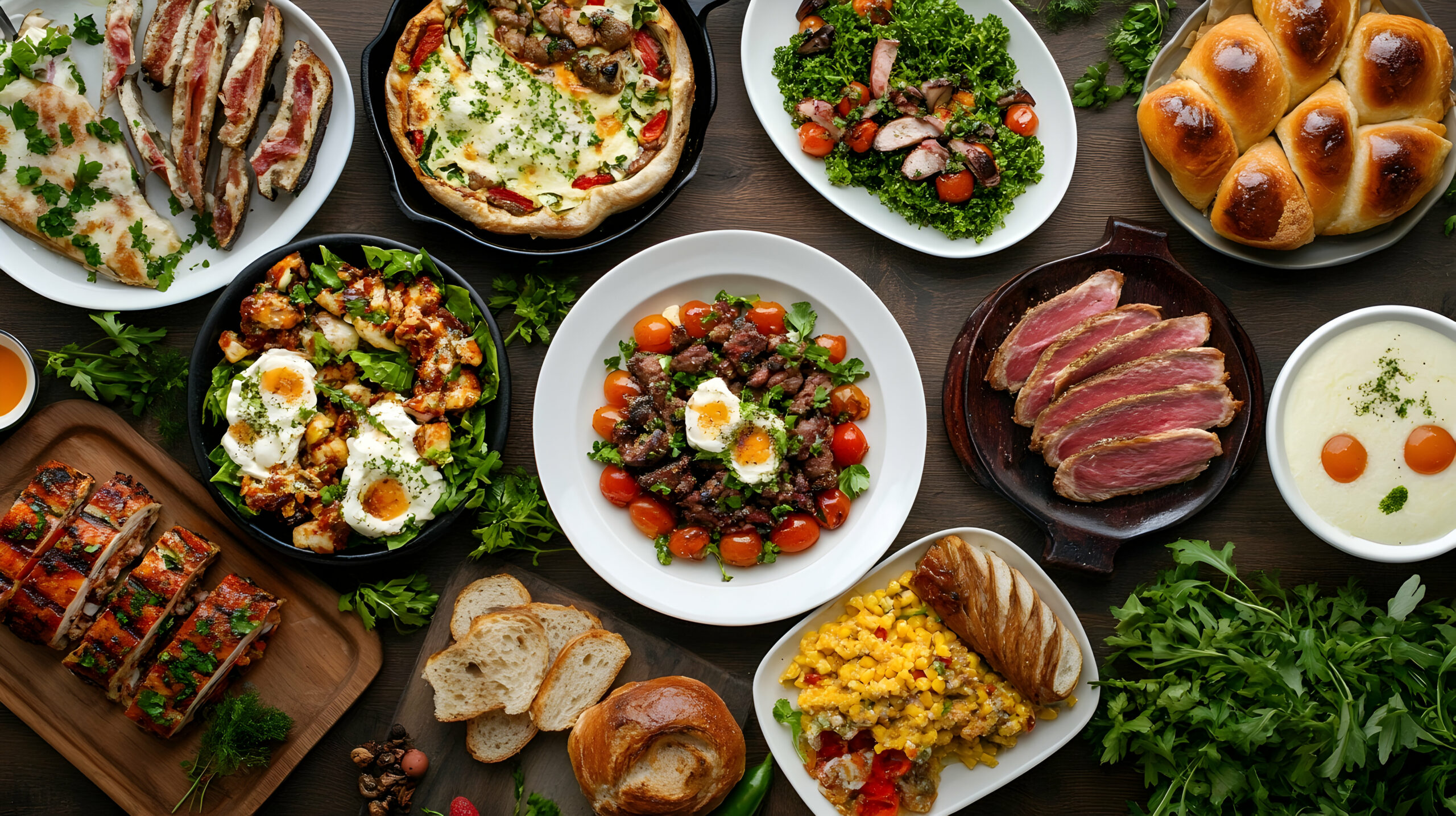The RDA (Recommended Dietary Allowance) for protein tells us the minimum amount of protein we need every day to survive. We’ve already found the ideal optimal amount of protein you need to thrive. But what is the maximum amount of protein you can eat? And what happens if you push that number too far?
Today, I’ll help you understand when you’ve pushed beyond your protein limit, its consequences, and how to get back on track.
How Much Protein Should You Eat Every Day?
Each of us has a different body. One reader (let’s call her Debbie), for example, might be a 160 lb, 58-year-old woman. Another reader might be Shaquille O’Neal. (It’s an honor to have you here, Shaq).
Common sense tells us that these two readers have different protein needs—their minimum and maximum numbers will look very different. The research is clear too: a person’s protein needs vary depending on factors like age, sex, weight, and activity.
For your body to function at its best, protein should make up 20-30% of your daily food intake, or 0.8-1.0 grams per kilogram of body weight. Debbie—our 160 lb reader—will probably need about 70 grams of protein per day. Shaq, who requires over 5,000 calories a day, will need over 250 grams of protein each day.
When Protein Becomes a Problem
You can go overboard on protein. If your diet is too protein-heavy, you may experience both short-term and long-term effects. Here are a few potential consequences of too much protein:
- Digestive Issues: Consuming excessive protein can strain your digestive system. It can lead to symptoms like gas, constipation, and bloating.
- Dehydration: Diets too high in protein can increase your body’s water needs. If you don’t drink enough fluids to compensate, you may become dehydrated.
- Kidney Strain: Your kidneys help filter and process the excess protein that you eat. But if you eat too much protein over a prolonged period, you can exhaust and strain your kidneys. This can lead to kidney problems, especially in people who have pre-existing kidney conditions.
- Nutritional Imbalance: If you’re overeating on protein, you may be undereating other macronutrients. Neglecting other essential nutrients, like carbs, fats, vitamins, and minerals, can lead to nutritional imbalance and deficiencies, and depleted energy.
- Weight Gain: While protein is incredibly important for weight loss and muscle growth and repair, consuming excess calories from protein sources can contribute to weight gain. Protein needs to be balanced with physical activity and a healthy overall calorie intake.
- Heart Disease: Protein isn’t exactly to blame for this health risk, but if your protein sources are full of other unhealthy ingredients and dripping in saturated fat, you could increase your chance of getting heart disease and colon cancer. A high-protein diet rich in clean meat and plant-based proteins may not carry similar risks.
How Much Protein is Too Much?
You can have too much of a good thing. There’s a major debate on the exact number when protein tips from healthy to harmful. The general and current consensus is that two grams per kilogram of body weight is the upper limit for most moderately-active adults. If you’re a 140-pound person, that upper limit would be about 125 grams of protein per day.
The Proper Way to Eat Protein
Try out these six tips to help you find your protein sweet spot.
- Hit your numbers: Too little protein and too much protein can harm your health. Shoot for the optimal amount of daily protein for easier weight loss, more satiation after your meals, and healthier aging. Keep your protein intake to about 25-30% of your daily calories (each gram of protein is 4 calories), or 0.8-1.0 grams of protein per kilogram of your goal body weight.
- Know your animals: 1 in 3 people from Ikaria, Greece live well into their 90s, often free of dementia and chronic disease. Their protein of choice? Fish. Wild-caught fish, sardines, clams, and shrimp provide protein along with omega-3 fatty acids. Looking for land animals? Check for “organic,” “grass-fed,” and “pasture-raised” on the label of chicken, beef, lamb, pork, eggs, cheese, and plain yogurt. Avoid animal proteins that are highly processed and have a list of added ingredients that you can’t pronounce.
- Go to the garden: Plants offer protein too! Plus, when you eat plant protein, you’re providing your body with a wealth of vitamins and minerals that it needs to thrive. Nuts, seeds, and beans are healthy and filling. Soy products like tempeh, tofu, and edamame can sub in for meat occasionally. Higher-protein vegetables include broccoli, asparagus, sweet potato, and Brussels sprouts. Enjoy high-protein whole grains, like quinoa, spelt, teff, buckwheat, wild rice, and oats.
- Disperse your protein: It turns out that when you eat your protein matters too. Ideally, your protein should be spaced out evenly across your meals. Take your total protein goal and divide it by 3. If you need 150 grams of protein a day, then your ideal per-meal goal is 50 grams.
- Keep it simple: There’s no need to spend hours in the kitchen. With the simple formula above, you can know how much protein you need in each meal. Check out my blog piece on some healthy, high-protein food options you can grab this week at the grocery store.
- Swap your ingredients: You can reach your protein needs simply by making some smart swaps. Cook with bone broth instead of stock. Add a clean protein powder to your oatmeal and coffee. Sprinkle seeds on your salads. Add chicken, fish, or beans to your lunch. Try chickpea pasta in your weekly rotation.
Hit Your Protein Goals the Practical Way
Reaching your protein goals can feel like one more thing to remember—especially when you have a job to do and kids to raise. That’s why I personally teach and train my LEAN clients how to optimize protein easily every day.
Protein is just one of the key components of healthy weight loss and management. If you’re ready to really get your head around weight loss and want to start seeing lasting results now, I’m your girl. Sign up for a six-week LEAN Session today.





